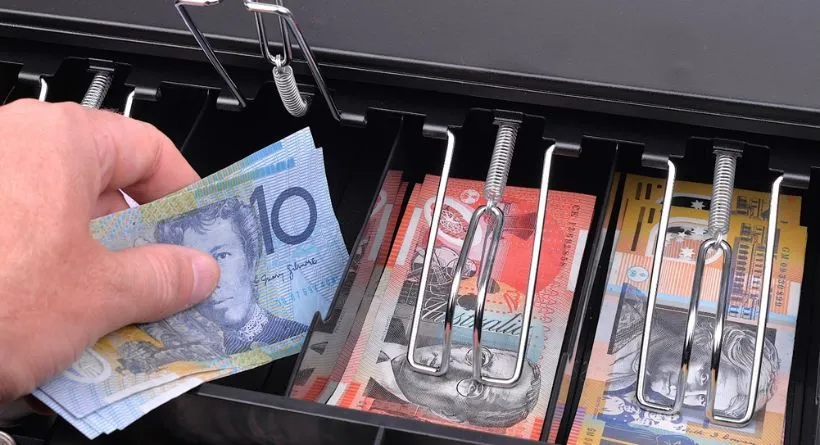A cash register is an essential device used in various industries such as retail stores, restaurants, and other businesses that accept cash payments. This device serves the purpose of calculating and storing financial transactions, providing a convenient way to calculate the total amount of a customer’s purchase while keeping a record of the sale. Cash registers usually come equipped with a cash drawer, display for customers, and keyboard or touchpad for data entry. Additionally, advanced cash registers offer built-in inventory management and sales tracking features, streamlining business operations and enhancing productivity.
Cash registers are a crucial tool for businesses as they aid in accurately tracking sales and maintaining transaction records, which can help deter theft and fraud. However, it is important for businesses to choose the right cash register that meets their unique needs and requirements. With the right cash register in place, businesses can streamline their operations, improve accuracy, and enhance overall productivity.
Types of the cash register
There are four main types of cash registers available in the market for you to choose from.
1. Electronic cash register
An electronic cash register is a reliable tool used for recording sales transactions and processing payments. Equipped with a cash drawer, keyboard, touch screen, and printer, this machine is highly efficient and can even include a barcode scanner for basic inventory operations. With low setup costs and user-friendly functionality, electronic cash registers are an ideal choice for small retailers seeking basic sales operations. These registers can provide a seamless and hassle-free payment process while enhancing overall business operations.
2. POS cash register
A Point of Sale (POS) cash register is an advanced computerized system designed to record and track sales transactions in a retail environment. Retailers can benefit greatly from POS cash registers, as they offer a versatile range of functions that streamline business procedures. These features include inventory management, generating sales reports, managing customer relationships, loyalty programs, and much more. By leveraging a POS cash register, retailers can optimize their operations, enhance customer experience, and drive growth.
3. Mobile cash register
A mobile cash register is a compact device that is specifically designed for businesses that require a register on the go. Equipped with a built-in battery, these registers are ideal for businesses that lack an electrical outlet. While basic mobile cash registers typically include a receipts printer and a keypad for entering prices, advanced models come with additional features such as a barcode scanner, credit card reader, and much more. With their portability and convenience, mobile cash registers provide a practical solution for businesses operating in various locations.
4. Cloud-based cash register
A cloud-based cash register is an innovative register that is connected to the internet and can be accessed from anywhere, making it an ideal solution for businesses with multiple locations. By leveraging a cloud-based cash register, businesses can easily track their sales and protect their financial data with the latest updates in the system. With increased accuracy and security, cloud-based cash registers can streamline financial operations and provide peace of mind for business owners. As a result, businesses can focus on driving growth and success rather than worrying about financial data security.
Things to consider when choosing the right cash register (500 words)

When selecting the cash register that best suits their needs, businesses should consider the following essential features.
1. Consider the size and requirements of the business
Business size and projected growth are two crucial factors that determine the appropriate cash register. If your business has a substantial inventory and anticipates substantial growth, then a comprehensive POS system with a barcode scanner is an ideal option. On the other hand, if your business has a limited inventory and requires minimal features, a simpler cash register may be sufficient. By assessing your business needs, you can select the cash register that meets your requirements, ensuring seamless operations and continued growth.
2. Security features
Safeguarding cash, checks, and electronic payment information is crucial for businesses, and selecting a cash register with fundamental security features is essential. A locking drawer ensures that only authorized individuals can access cash and checks, while a password feature prevents unauthorized access to the cash register. Additionally, businesses can install a cash drop box nearby to securely store large sums of money. By choosing a cash register with robust security features, businesses can prevent theft and protect their financial data.
3. Inventory tracking
Choosing the right cash register depends on the size of your inventory. A basic cash register is ideal for businesses with limited inventory, while those with a large inventory can benefit from a POS system with inventory tracking features. With this feature, businesses can monitor daily transactions and keep track of the exact number of products they have in stock automatically. This saves time and prevents businesses from running out of stock. Instead of performing manual inventory counts, businesses can rely on a POS system with inventory tracking to streamline their operations.
4. Receipt printing options
Thermal and print ribbon cash registers differ in their initial and long-term costs. While thermal printers are pricier upfront, they are cost-effective in the long run as they don’t require frequent ink cartridge replacements. Print ribbon printers, on the other hand, are cheaper to purchase initially but may incur higher ink cartridge costs due to their lower-quality text on receipts.
5. Retailer or vendor
When purchasing a cash register, the buying source and level of sophistication required should be considered. For a basic cash register with minimal features, retailers may offer suitable options, and used models may be an option. On the other hand, for a more advanced POS system, purchasing from a vendor is advisable. A reputable vendor will offer various packages with flexible pricing options that can be customized to meet the specific needs of your business.
6. Budget
Although cash registers and POS systems may come with a higher price tag, businesses can find ways to make the investment more affordable. One reason for their cost is their long lifespan, which justifies the initial expense. Additionally, purchasing a used machine from a business that is closing or leasing a system from an equipment supplier can be a more cost-effective option.
The cash register or POS system plays a critical role in any business as it is where transactions are processed and money is exchanged. To ensure smooth operations, it’s important to choose a cash register or POS system that can handle the business’s volume, process transactions quickly and accurately, and provide a reliable record of sales.
Selecting the right cash register is crucial for enhancing your business operations and simplifying your employees’ job tasks. TVS Electronics offers a diverse selection of cash registers to ensure you pick the one that best fits your business requirements. Improving customer service becomes a breeze with the right cash register, as it facilitates seamless transactions and provides customers with an efficient payment method for their purchases.







